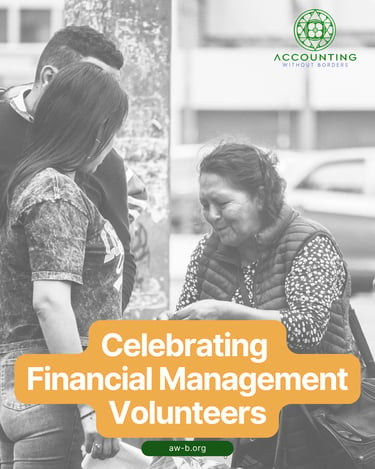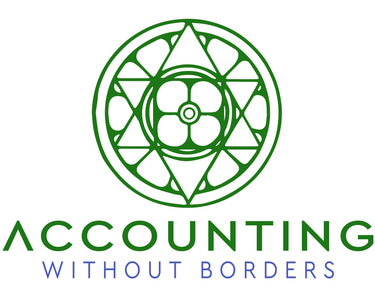🌟 Celebrating the Unsung Heroes of NGO Financial Management
Celebrating the vital role of volunteers who strengthen NGO accountability and impact through expert financial oversight and governance.
Accounting Without Borders
2 min read


🧾 The Role of Volunteer Boards in NGO Accountability
Most NGOs are governed by a volunteer committee—commonly referred to as a Board of Trustees, Board of Directors, Council, or Executive Committee. These volunteers are unpaid, yet carry legal and strategic responsibility for how the organisation is run, particularly how funds are managed and used.
No matter the NGO’s legal structure, trustees hold a statutory duty to ensure the organisation is operating properly, that donor funds are spent as intended, and that financial risks are identified and managed. If things go wrong, it is the governing body that is ultimately accountable.
💡 What Do Volunteer Trustees Actually Do?
Volunteer board members—especially those with financial oversight roles—are essential to ensuring transparency, strategic planning, and financial resilience. Their key responsibilities often include:
✅ 1. Approving and Monitoring Budgets
Trustees ensure the budget aligns with the NGO’s strategy and approve it formally. They monitor its implementation, and any major changes should return to the board for approval.
📊 2. Reviewing Financial Reports
Boards typically review financial reports quarterly, gaining visibility into how funds are being used to deliver impact. A designated Treasurer, often elected or appointed, may take a lead role—particularly in smaller NGOs where they may also support bookkeeping.
🔐 3. Overseeing Internal Controls
Trustees help ensure that internal controls are in place to safeguard assets, prevent fraud, and ensure accurate reporting. This includes having financial procedures, strong documentation, and periodic reviews or audits.
🧾 4. Appointing External Auditors
The board is responsible for appointing an independent, registered auditor where required. An external audit adds credibility and transparency, reassuring funders and regulators that resources are being managed responsibly.
📈 5. Strategic Financial Oversight
Financial reports are not just for compliance—they are decision-making tools. Trustees use them to assess risks, consider programme viability, and ensure long-term sustainability.
🤝 Behind the Numbers: Building Trust and Sustainability
While paid staff may manage day-to-day accounting, the governance, strategy, and accountability framework comes from the volunteer board. Their commitment plays a pivotal role in ensuring that NGOs can build trust with funders, maintain good donor relationships, and steward their resources responsibly.
Good financial governance helps:
Strengthen accountability to stakeholders
Improve confidence with partners and funders
Support long-term financial health and impact
🎉 Thank You to All Financial Governance Volunteers
Being a volunteer in financial management is both a responsibility and a contribution of deep value. Trustees and Treasurers provide oversight, make tough decisions, and safeguard the integrity of an organisation’s finances—all without financial compensation.
As we reflect during Volunteers’ Week, we extend our heartfelt thanks to every volunteer who supports financial management in NGOs. You make mission delivery possible—and your work ensures that every donation, every grant, and every pound makes the greatest possible difference.
When we think of impactful NGOs, we often picture passionate individuals delivering programmes on the ground—supporting communities, advocating for change, and responding to urgent needs. These frontline roles are essential. But equally critical, though less visible, are the volunteers working behind the scenes to keep NGOs financially strong and accountable.
As we celebrate Volunteers’ Week, we want to spotlight the individuals who donate not just time, but expertise—those who support financial governance and oversight in NGOs.
Copyright © 2023 Charity Finance Group. All rights reserved
AWB is a trading name of Accounting Without Borders Limited


If you have a general enquiry rather than a question for a specific partner, then please phone or email us and we will respond as quickly as possible
General enquiries:
UK & Europe +44 (0) 207 123 7061
US & Canada +1 (646) 914 0609
Email: hello@aw-b.org




